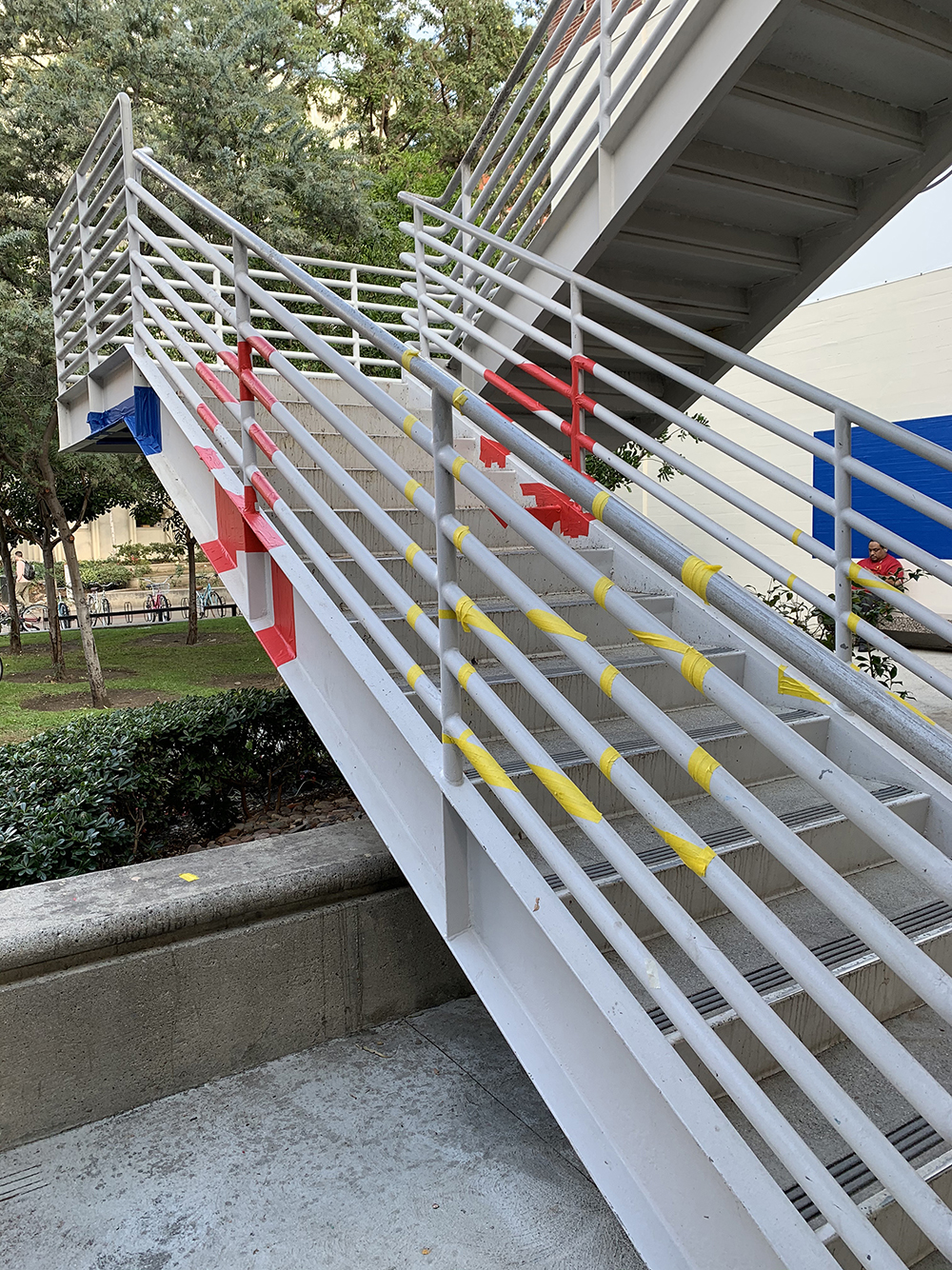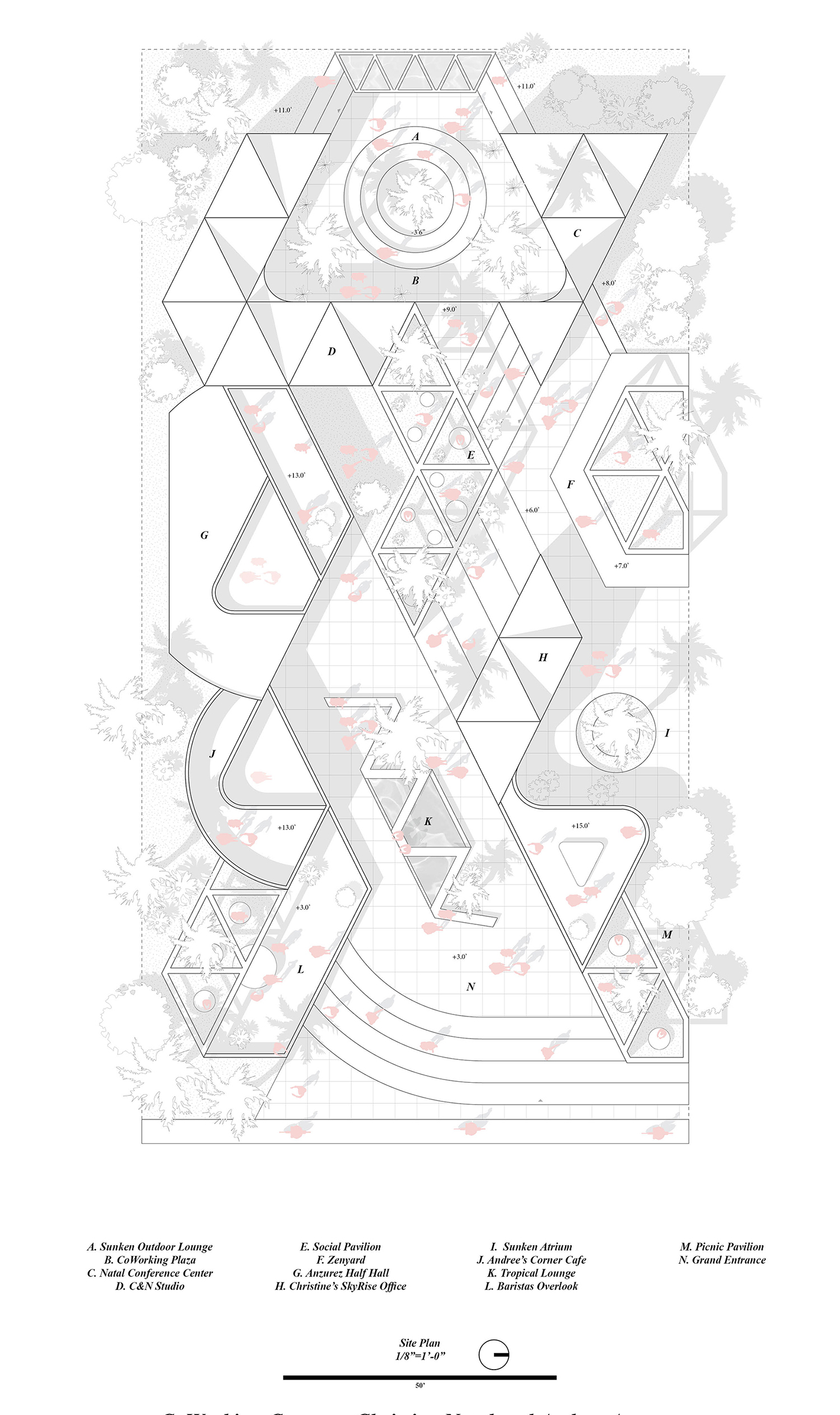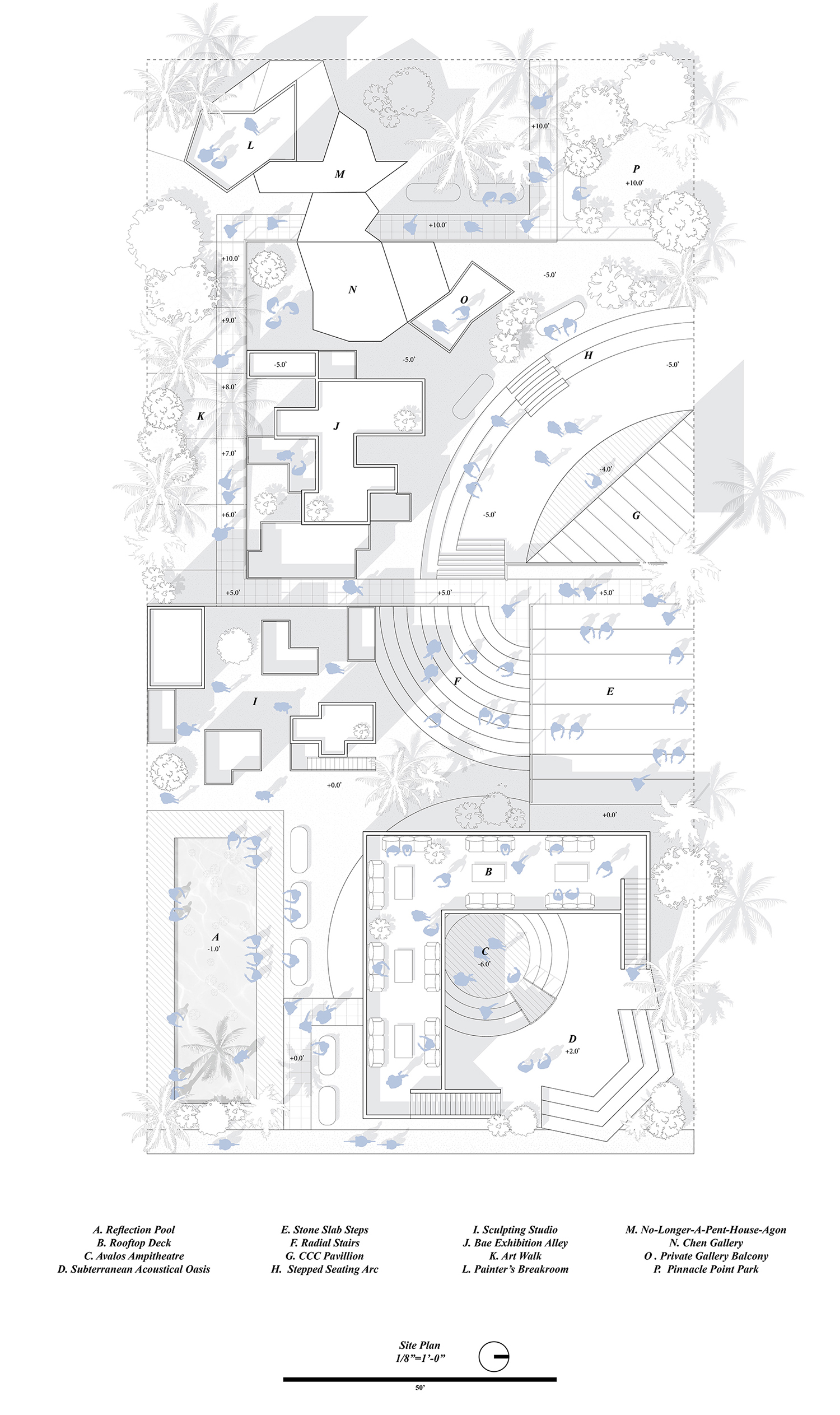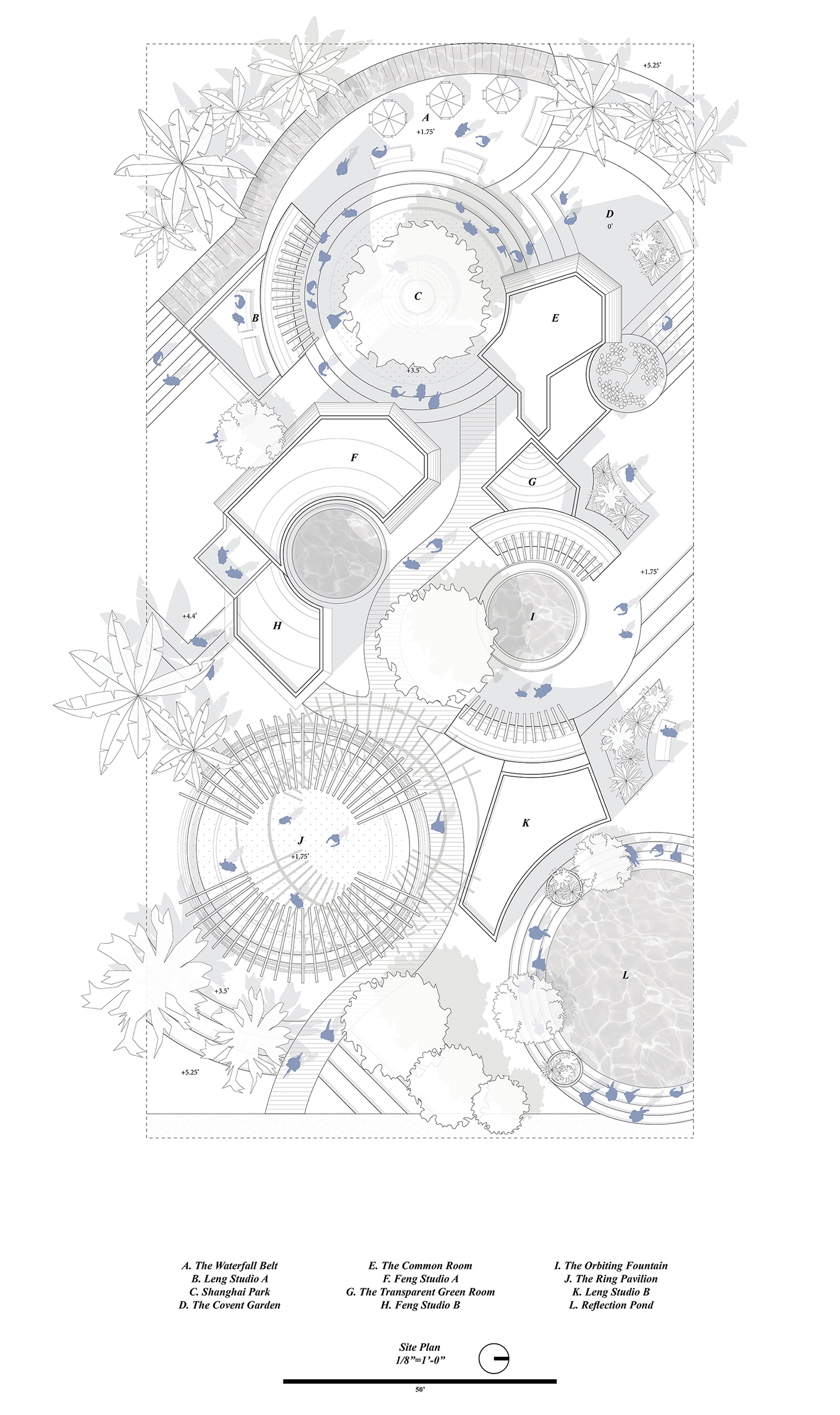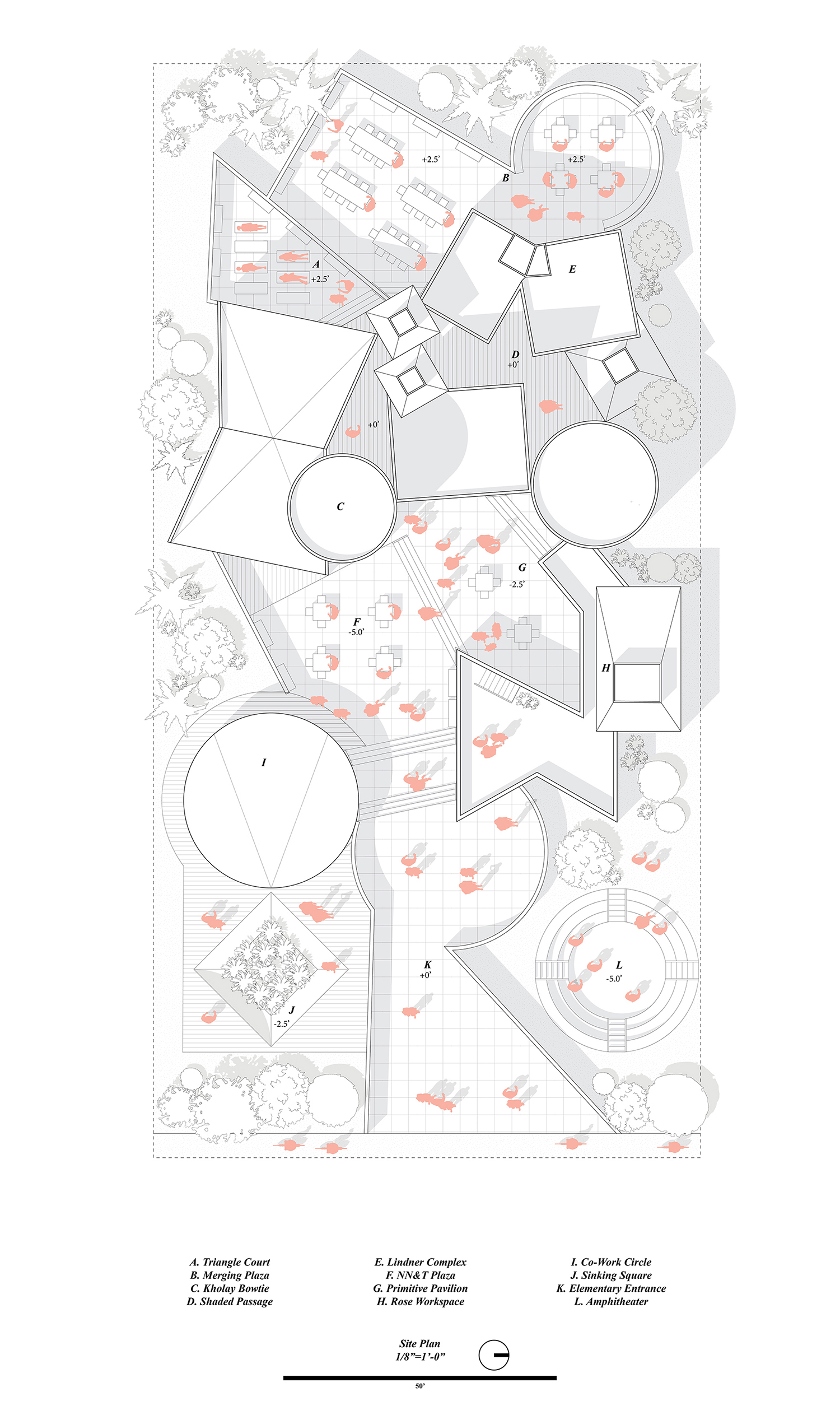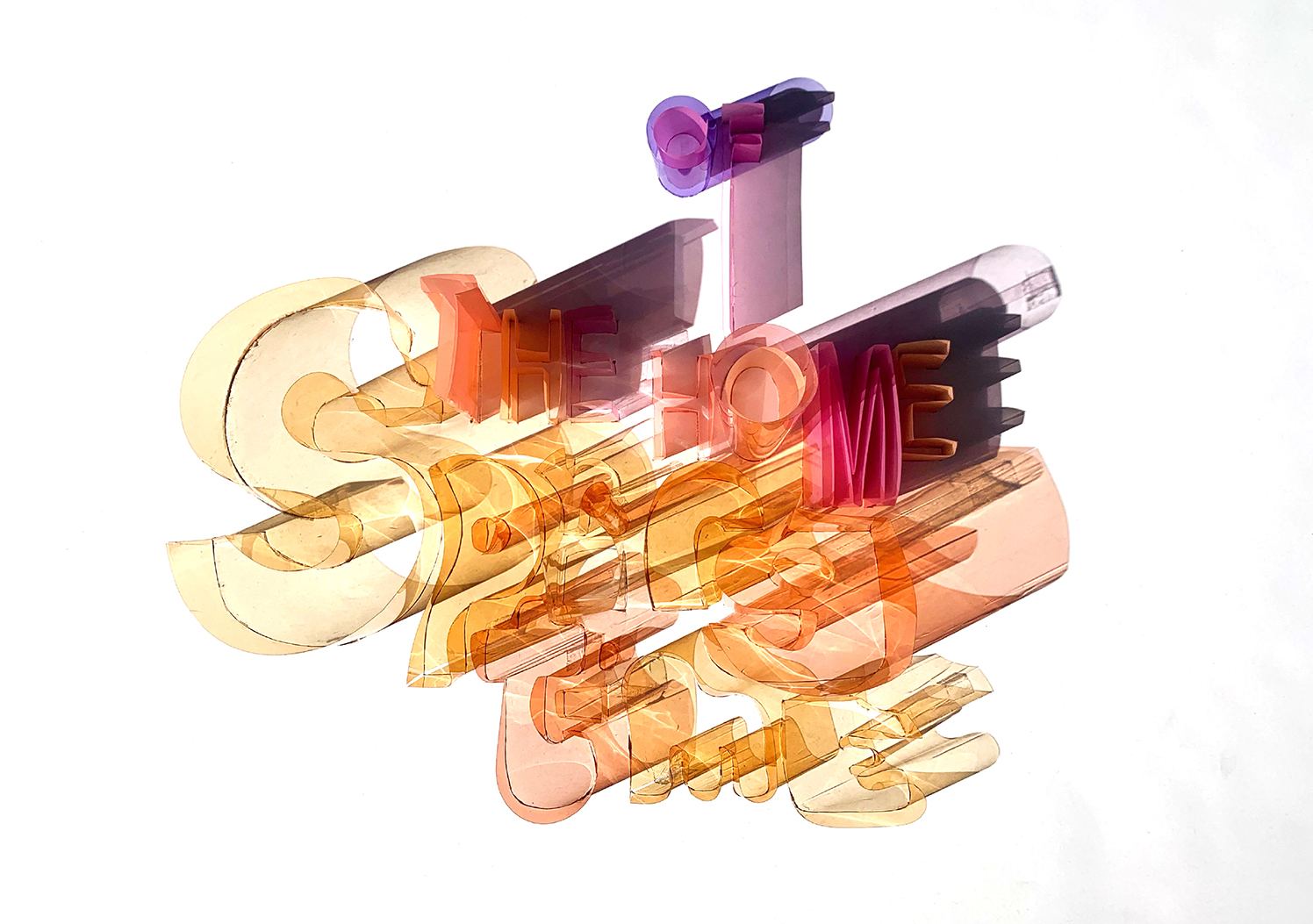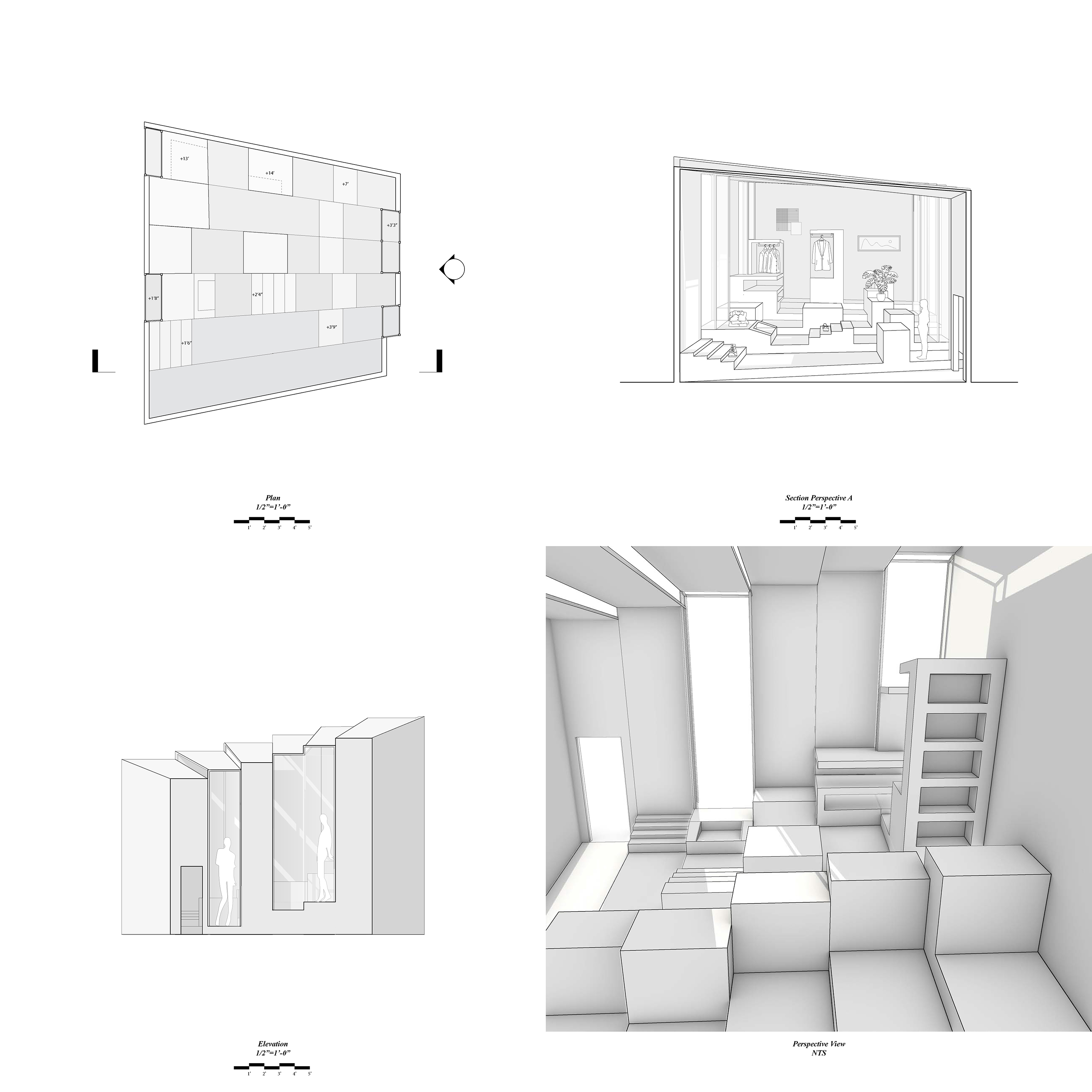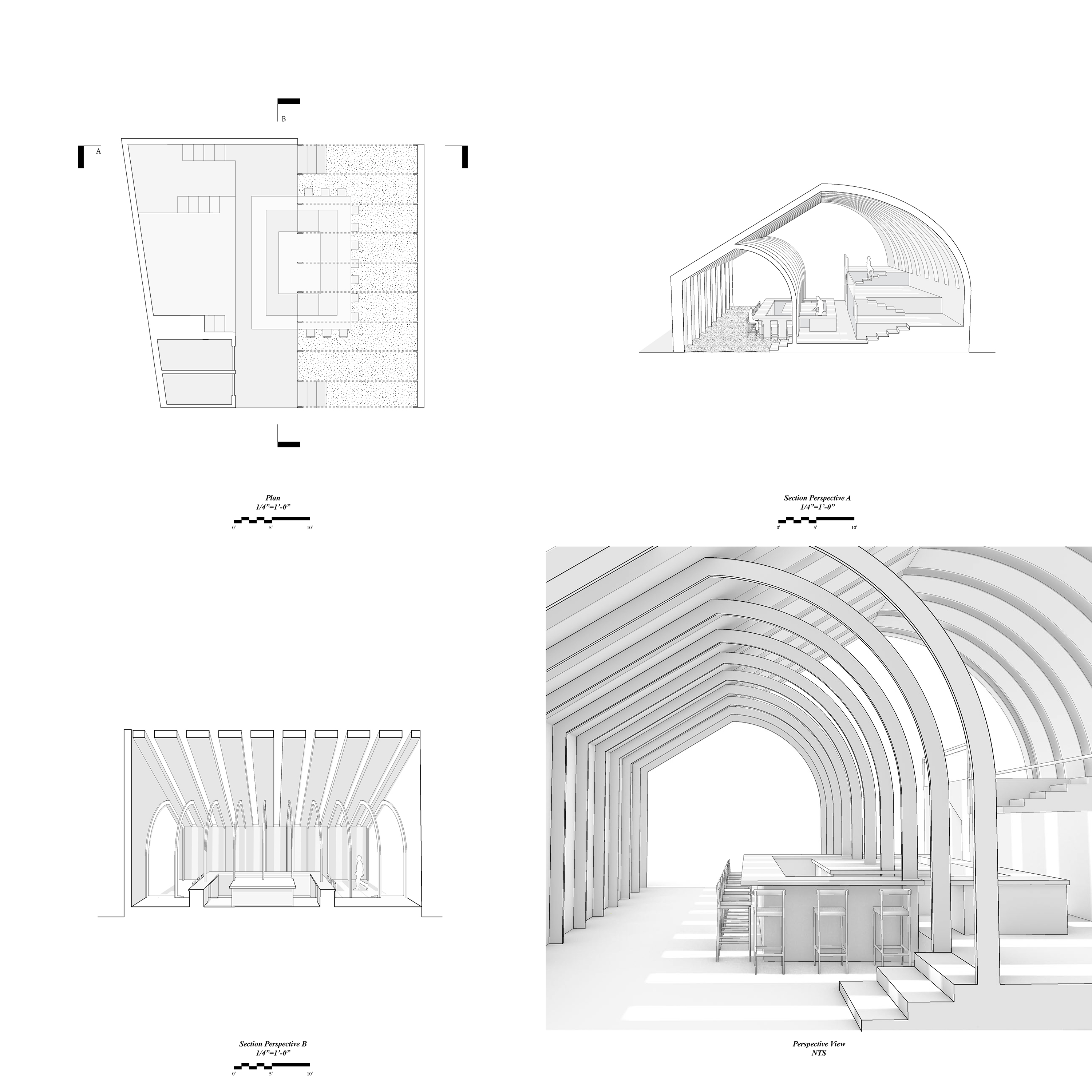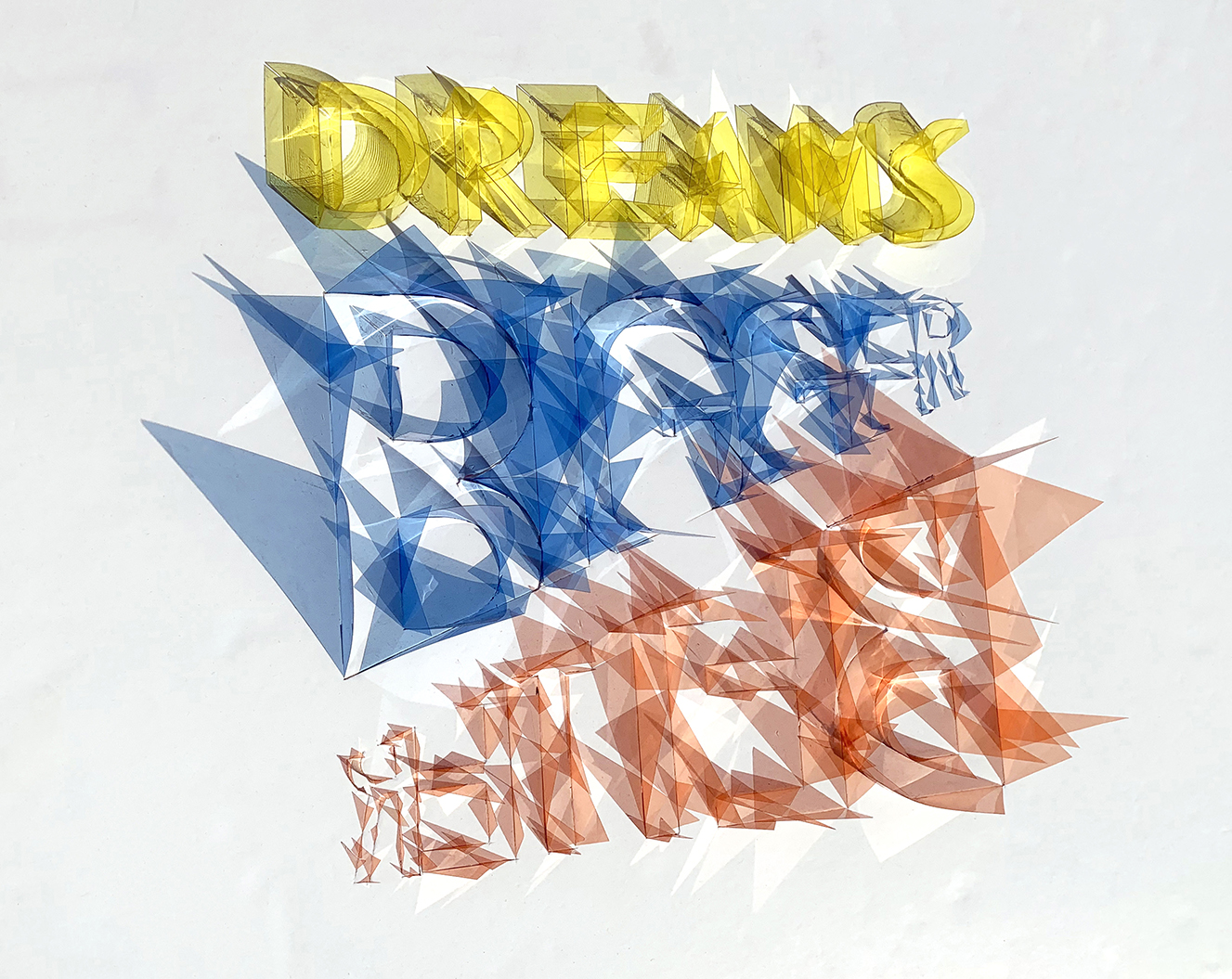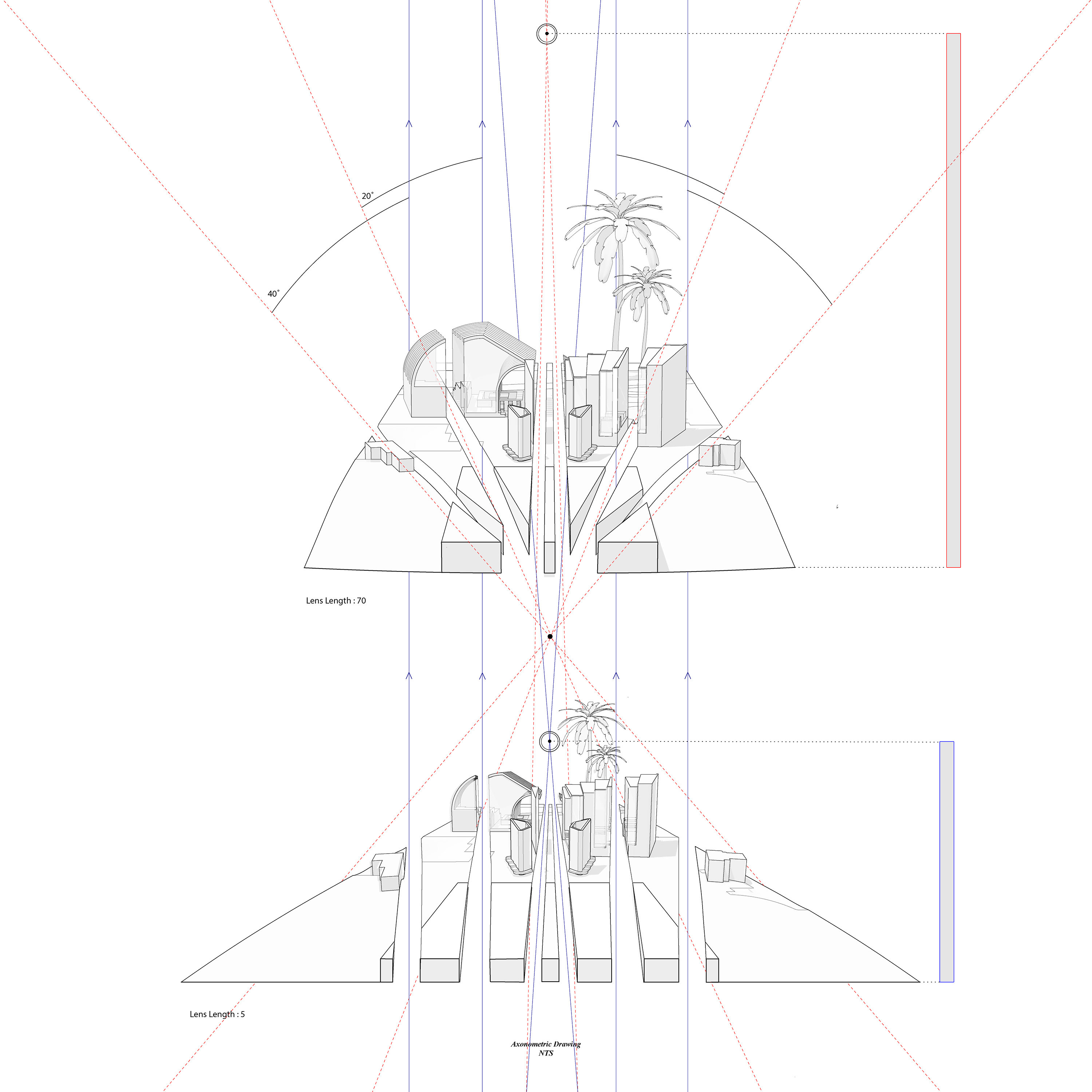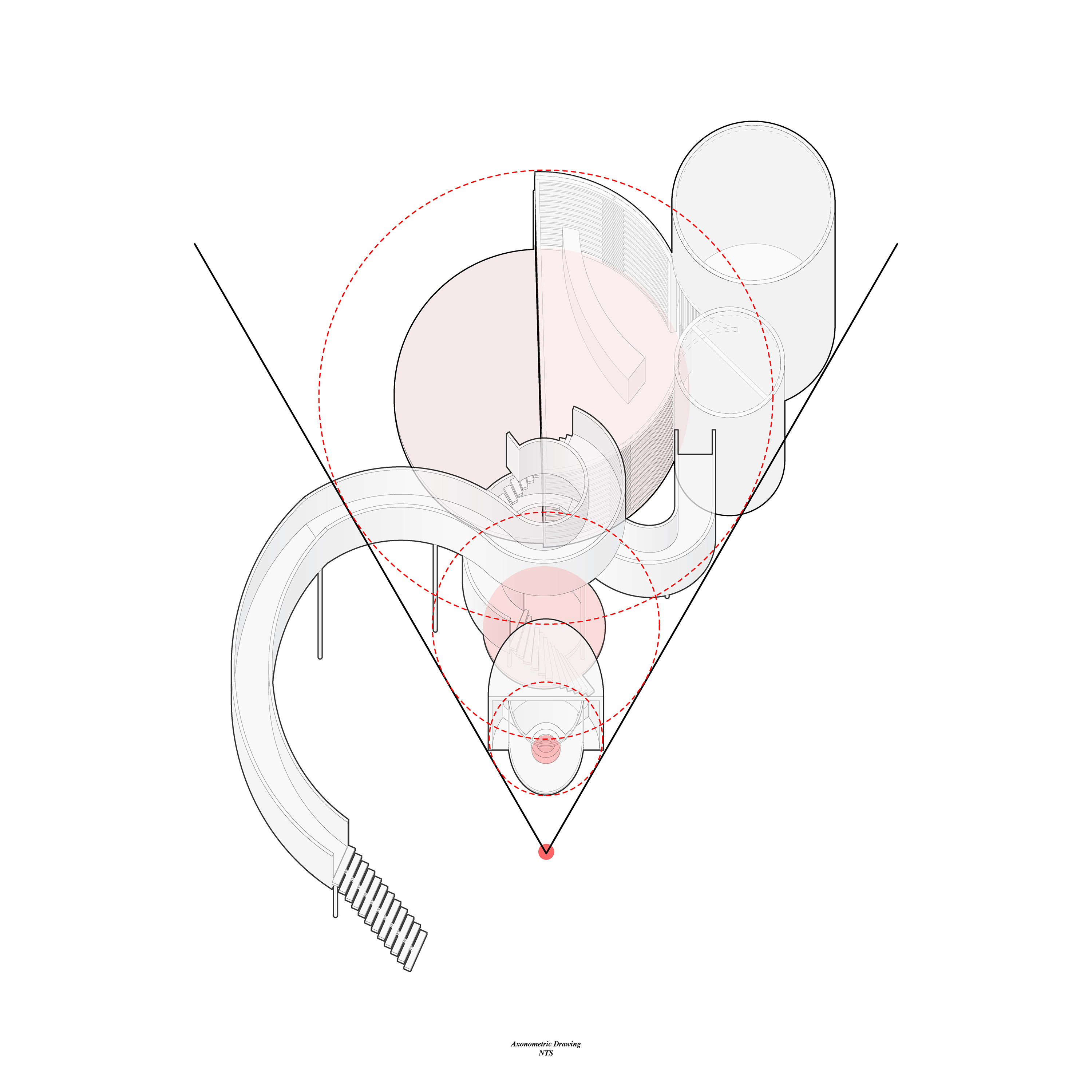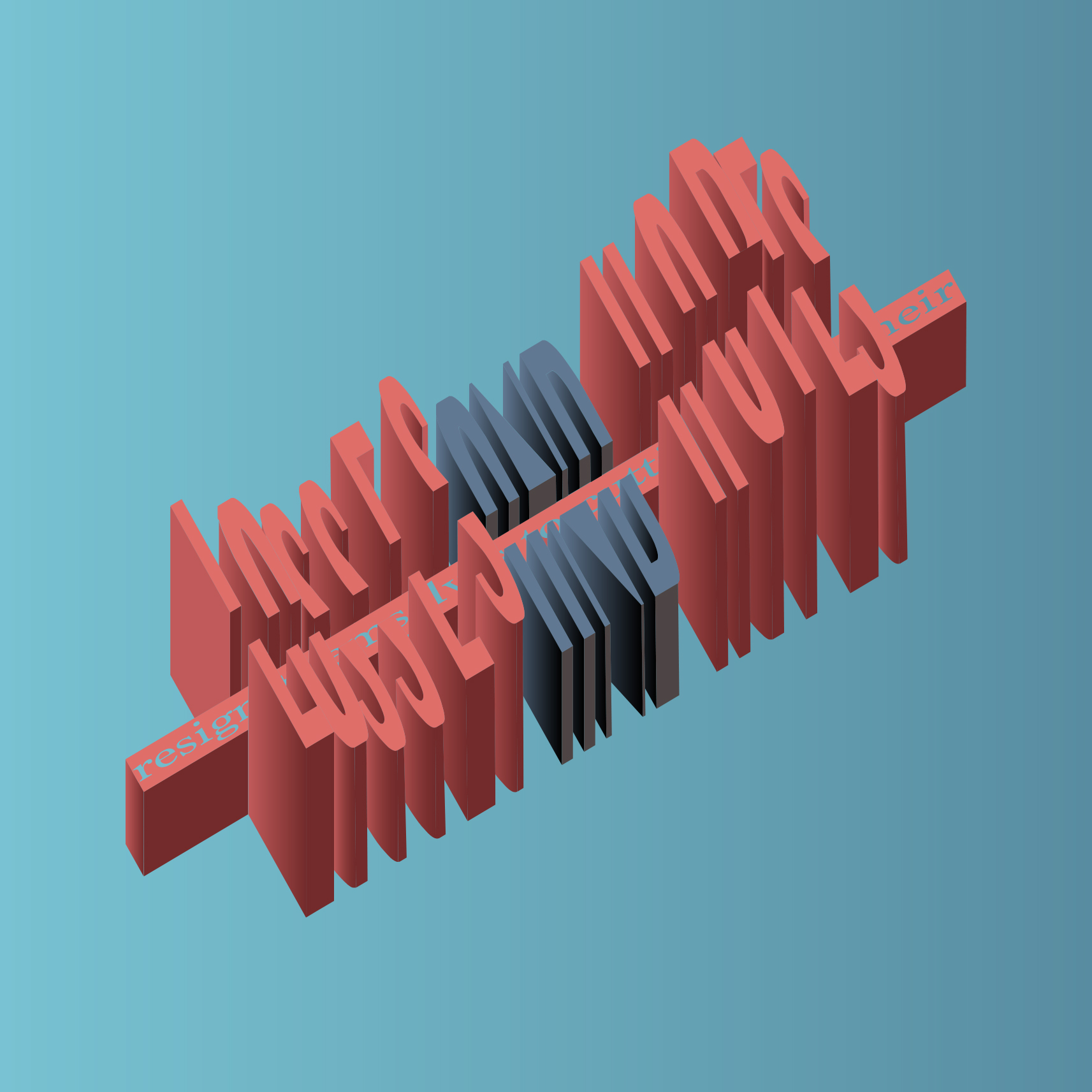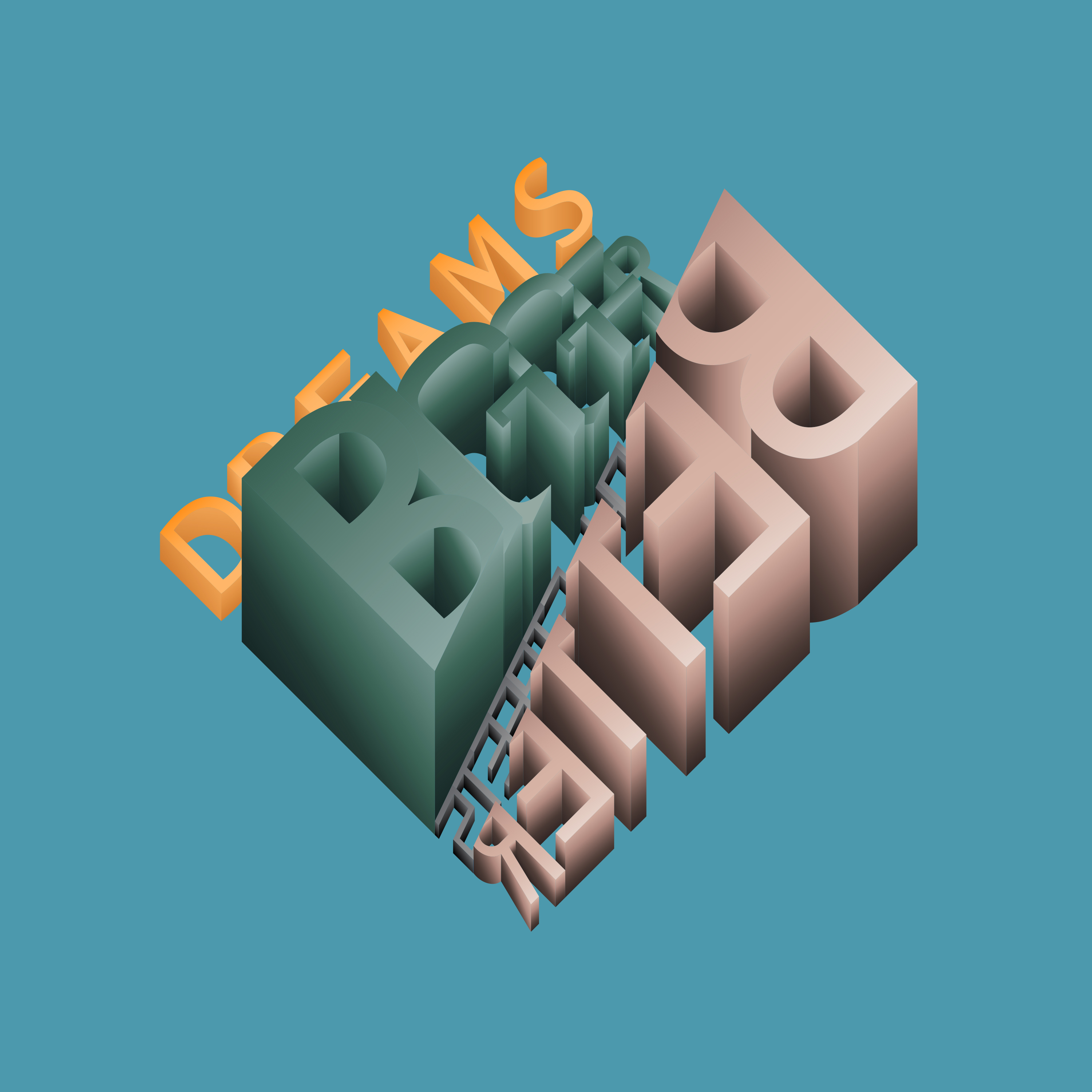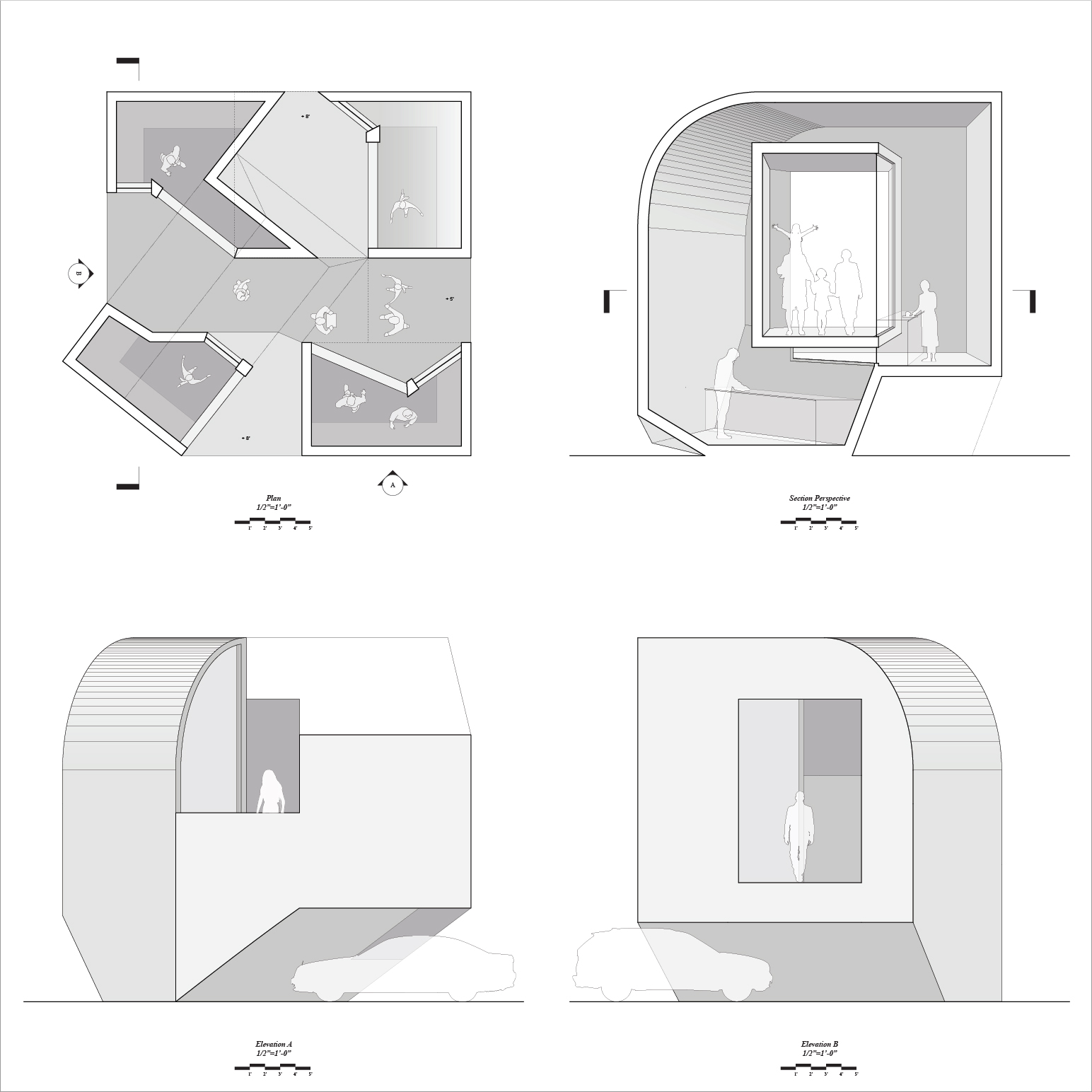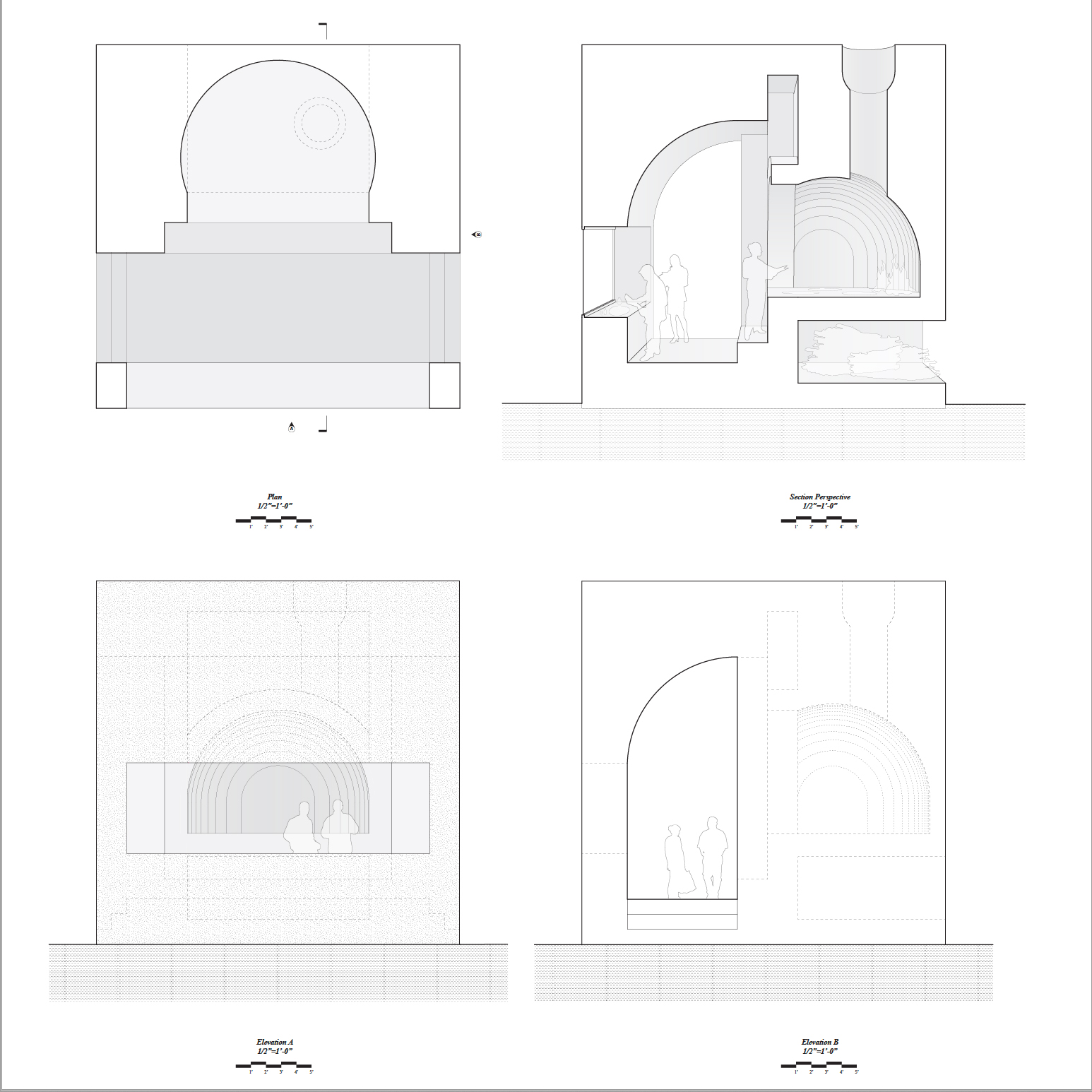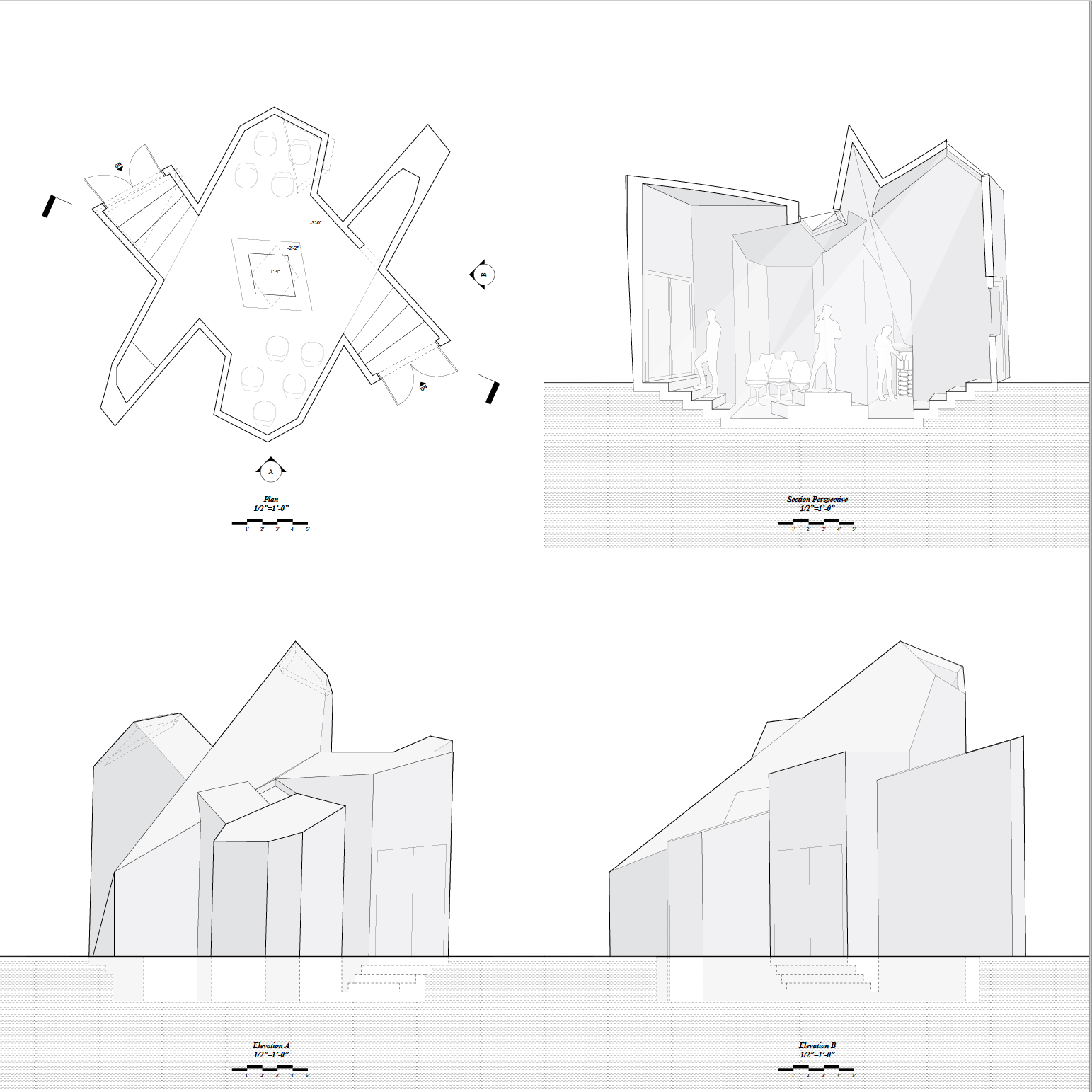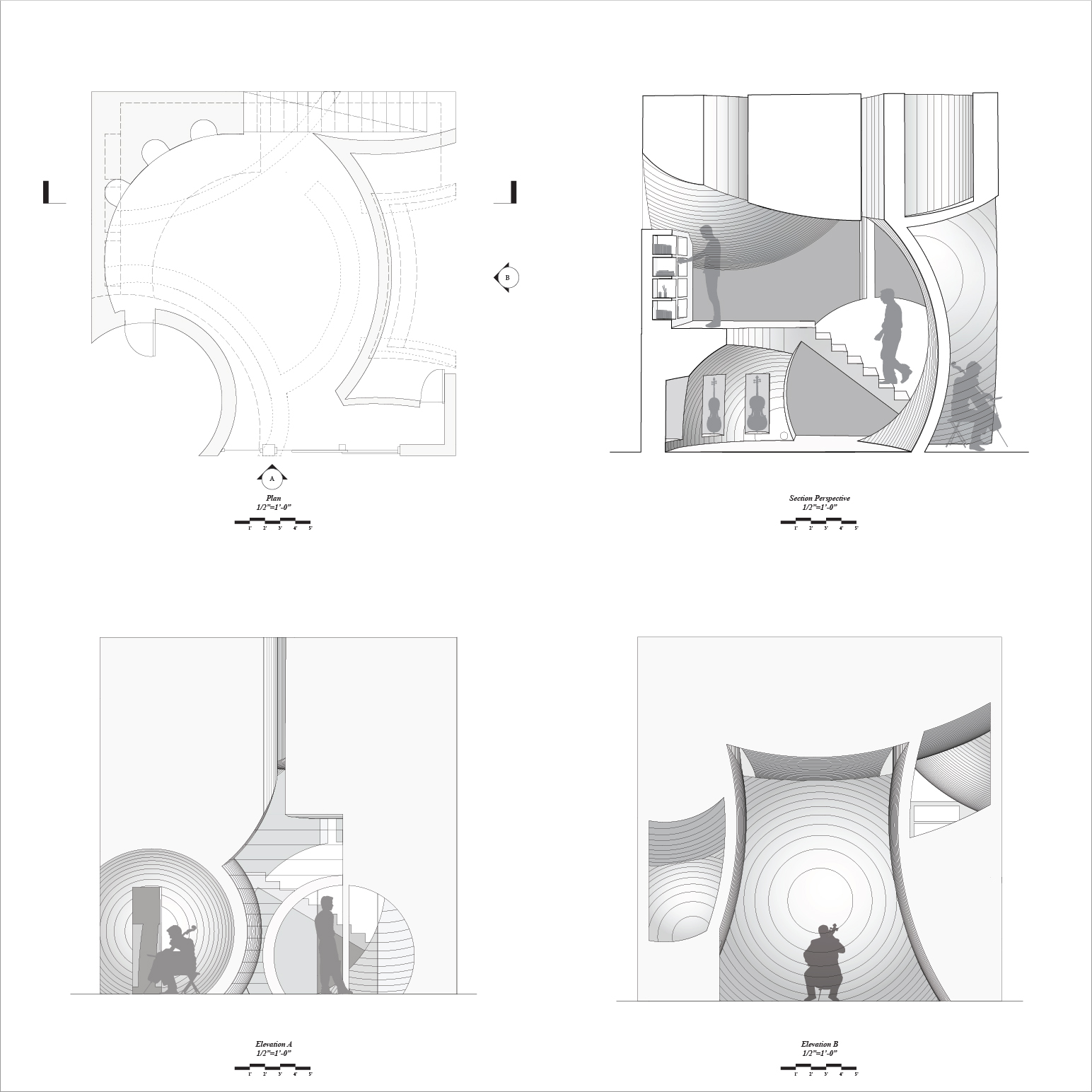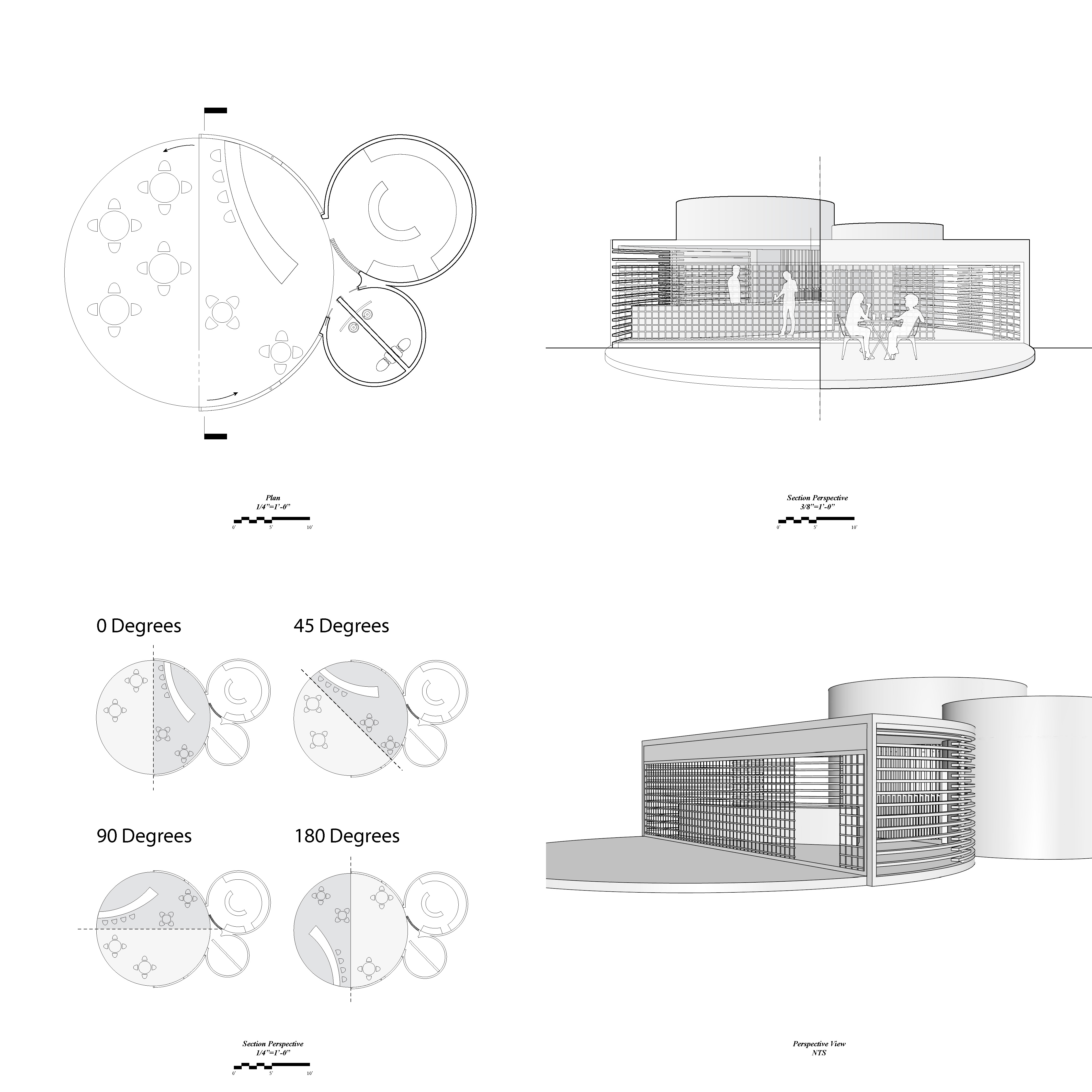In the late 19th and early 20th centuries, Detroit’s Virginia Park district exemplified a city at its peak – generous lot sizes and monumental homes marked it as one of the most desirable residential communities. However, after decades of economic decline, the historic area is now filled with stretches of vacant lots and ghostly remains. Though some of the abandoned homes have been recently rehabilitated, the restored mansions are no longer appropriate or economically viable for the average Detroit family due to their size and required upkeep.
This project transforms the typical Virginia Park home through a series of operations that repurpose the existing historic structure while exploring alternative homeownership scenarios. Each home is hybridized with a new commercial program and is designed for different family types: the bachelor or young couple, the single-parent, the nuclear family, and the empty nesters. The commercial component generates income while also activating the neighborhood’s vacant lots through pockets of local business activity.
Each hybridization produces strange juxtapositions, singular conditions, comical postures, and chance encounters. These unconventional moments are studied through typical scales of architectural detail (1”=1’-0 detail models and 3”=1’-0” detail drawings), examining varying degrees of exactitude and tectonic expression. While the original district upheld strict guidelines for uniformity, materiality, and traditional single-family ownership, this project celebrates difference, innovation, and new opportunity, speculating on the 21st-century family’s needs as Detroit progresses through an energized era of revitalization and growth.
The project is presented as 4 scenarios. Please click through below to explore each proposal.
STUDENT WORK
